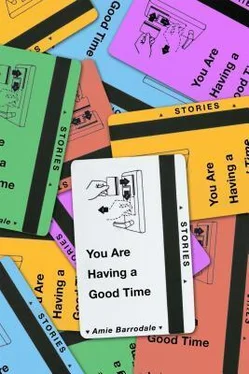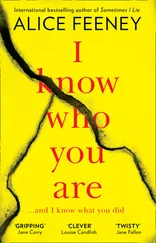I handed him his copy of the receipt, smiled, and bowed. He stood there, searching my eyes.
I said, “The white is going to be beautiful with the gold.”
“Or it’s going to look like an Ed Gein.”
I didn’t understand the reference.
“John Gotti,” he corrected himself. “You know, a mafioso.”
I blinked.
“Didn’t you ever see those movies?”
“Right.” I made my fake laugh, but the color in his cheeks did not brighten, and he did not smile.
* * *
When the bowl came in, I understood what Mr. Thibideaux meant about John Gotti. The white and the gold were sumptuous in a way that American filmmakers associate with the high life of a mafioso. I don’t mean to say that the bowl was ugly — in fact, it was striking in its beauty — but rather, that it took seeing the bowl to understand what it was Mr. Thibideux had tried to express.
Ordinarily, I am efficient in the dispatch of my duties, but in the matter of the Tatsusuke commission, I found myself procrastinating. I was reluctant to call Mr. Thibideaux. Sometimes I would begin to make the call, and then I would remember some other pressing matter. Other times, I sat for a long time in front of the phone, unable to pick it up and dial the numbers. I understand this is quite ordinary for others, but for me, this behavior is highly unusual. I also found myself lingering around the bowl, staring into it for long stretches of time.
I put a small white label on Mr. Thibideaux’s bowl, and handwrote on that label the word “sold.” I did not place the bowl out, where an unscrupulous customer could unpeel the label, but rather used it in a jewelry display. I placed it, perhaps a bit contrary to Mr. Tatsusuke’s wish, in one of our jewel-box street displays, adjacent to a very precious item made of twisted settings of uncut ruby stones.
The bowl did not go unremarked. The white Mr. Tatsusuke had chosen for the tea bowl was stainless. It was subtly luminous, and offset by the gold, it was luxurious. Unlike many potters who imitate the work of Lucie Rie, Mr. Tatsusuke does not aspire to ever-increasing feats of thinness in his clay, nor is he interested in a smooth exterior and flawless lines — a yoga student’s idea of peace. Mr. Tatsusuke’s hand is bold. He has a masculine commitment to his imperfections, rather than a fretting quality. His craftsmanship is masterly, and this particular bowl stood out from the body of his work. It was like a declaration of love. For what, I was unsure.
* * *
It was a month later, sometime in the middle of a weekday afternoon, that Mrs. Thibideaux and I had our only conversation. I had let the phone ring and ring, so I was startled when the rings came to a halt, and after a little fumbling, a woman spoke to me with great confusion.
“Hello?” she said. “Hello?”
“Good afternoon,” I said. “I hope I didn’t wake you?”
She just gave a cough and then apologized for her cough.
I said, “No need to apologize. I’m calling from Seibu department store. I was calling to inform Gerard Thibideaux that his commission has arrived in the store.”
“Hello?”
“Yes, good afternoon, I’m calling from Seibu downtown. Is Gerard Thibideaux available?”
“Jerry?”
“Yes, he had ordered a bowl from us, and I wanted to inform him it has come in the store.”
“Jerry isn’t here!”
“All right, could you please inform him—”
I heard her fumbling the phone in its cradle, and after a few moments, she managed to hang up.
* * *
My shyness about the bowl began to diminish. As days became weeks, I got in the habit of calling regularly. I think it was about twenty-one days later when, abruptly, Mr. Thibideaux answered the phone.
“Thibideaux residence, Jerry speaking.”
“Mr. Thibideaux, this is Fumi at Seibu department store.”
“Hello, Fumi. How are you?”
“Yes, I’m fine. I was calling to inform you that your commission has arrived in the store.”
“Uh-huh, thank you, Fumi. I appreciate that.”
“Of course. Do you know when you might be free to come in?”
“No, Fumi — to be honest, I don’t.”
“Sir? The bowl is in the store, for clarification. It has already arrived in the store. That’s for clarification purposes.”
He started to say something, but then he stopped, and for a little bit of time, both of us were quiet.
“Mr. Thibideaux?”
“Yes?”
“Your bowl has come into the store four or five weeks ago. Do you know—”
“I heard that, Fumi.”
“Oh.”
Then we were quiet again.
“Mr. Thibideaux,” I said, but before I could continue he said, “I’m waiting for some cash to land. Fumi, I’m waiting for some cash to land in my account.”
He began to tell me something about check number 622. I said, “Perhaps you could make a payment.” Then he started to tell me about a trust fund in Mississippi. He explained his great-grandfather was a pine baron. He talked about caring for his mother, about how much it cost him, and then his mother began to shout at him in the background. Actually, she was quite capable of saying things that were unkind. Mr. Thibideaux said, “Fumi, would it be all right if I called you back?”
But rather than letting me answer, he just hung up the phone.
* * *
Months passed with no word from Mr. Thibideaux. He never called, and he never answered the phone when I called. I left messages. I even considered writing him a card. I thought about it quite often. Once, I even found myself thinking about it under the strange conditions of a dream. I was trying to get some nails and tacks gathered in crumpled-up newspaper while at sea, in an old wooden sailboat, amid tossing white-crested waves. I was in the bottom of the boat, in a small cellar, so the tossing waves caused the nails to keep escaping my grasp. “It doesn’t matter,” somebody was telling me, and I was saying, “No, it does matter. It matters a lot!”
It was a small thing, an inconvenience, but it grew in my mind, so that when I looked at, when I even thought about, Mr. Thibideaux’s bowl, I felt sick to my stomach. It became the kind of incident a person could explain to a psychologist.
* * *
Several days after Mr. Tatsusuke died of natural causes, Mr. Seibu asked me to show him the white bowl from the jewel-box display. It had been a year since I had spoken on the phone with Mr. Thibideaux. Mr. Seibu ran his fingers along the spiral divot inside the bowl, where Tatsusuke had traced his fingers through the clay. He turned the bowl to examine its bottom, and I knew he wanted to take it. This is quite ordinary for Mr. Seibu, who could of course have any item in his store.
I knew he was going to take the bowl. I also knew that I was going to have a telephone call from Mr. Thibideaux. What I did not know was that Mr. Thibideaux was going to choose that particular moment to appear in the store, like the fox. He stood behind Mr. Seibu, who was saying, yes, maybe he would like to take the bowl to his home.
I nodded. I took the bowl and turned. I began to wrap it in tissue paper, and then I stopped. It was my responsibility to explain that the bowl belonged to Mr. Thibideaux. I took a moment to compose my words.
“Fumi”—Mr. Seibu gave me a funny look and extended his open palm to take the bowl. He bowed and said good night.
Actually, Mr. Thibideaux never spoke. He just turned and walked out slowly, even stopping to pick up a Daum figurine of a penguin. I considered racing out onto the sidewalk and taking Mr. Seibu by his sleeve. I would just have to explain — it was a commission, I made a mistake. But I was uncertain, thinking of all the different ways to begin.
* * *
Later that week, I received an envelope, and inside it I found a card. On the front of the card was a photograph of a naked old man who was tied to the ceiling by ropes and had some kind of foam smeared all around his bottom. A second old man, wearing a lot of leather, had his fist inside the first man’s bottom. I probably should have just thrown the card away, but I opened it and found a long inscription in a delicate hand.
Читать дальше












